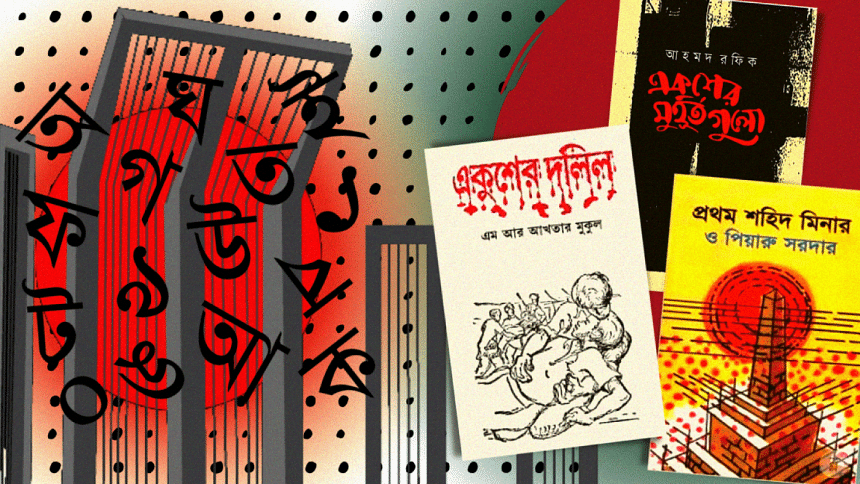Books to read on the Bangla language movement

Countless stories, poems, essays, and novels have been written about the Bangla language movement of 1952. Biographies of martyrs have been authored.
Zahir Raihan, who took an active part in the language movement, details these experiences in his extraordinary work, Ekushey February (Anupam Prokashoni, 1970).
Notable author Bashir Al Helal published a book on the movement set against a large canvas, titled, Bhasha Andoloner Itihash (Agamee Prokashoni), with the third edition having come out in 2016. In his book, Al Helal traces back to events before the movement and gives a detailed account of what happened throughout the month of February in 1952. Such an elaborate discussion has found a place in few books since.
Ahmad Rafiq, one of the students who had spearheaded the language movement, wrote several books on the topic: Ekusher Muhurtogulo (Prothoma Prokashon, 2017), Teknaf Theke Tetulia (Prothoma Prokashon, 2019), and Rashtra Bhasha Andolon Onushonggo O Itihash (Anindya Prokashon, 2017), among others.
Rafiq, through his work, emphasises that the language movement was not confined to the capital. Just as the students erupted in protests in Dhaka city, so did parts of Mymensingh, Rajshahi, Bogra, and other parts of the country—movement for the demand of Bangla to be instated as state language, the activists who led the protests outside Dhaka, and other previously unknown facts come up in Rafiq's book.
While Rafiq's Bhasha Andoloner Golpo Shono seeks to draw children into reading about the movement, his Bhasha Andolon Itihash O Tatporjo, co-authored with Abdul Matin, offers insightful reading for adults. Edited by Matiur Rahman, Ekusher Potobhumi, Ekusher Smriti (Prothoma, 2012) is another discerning read.
From the Bangla Academy have arrived books such as Shongrami Abdul Matin written by Mohammad Ali. Professor Anisuzzaman has written on Prothom Shahid Minar O Piyaru Shordar. Aminur Rahman Sultan has written about the language activist in Shongrami Gaziul Haque.
Despite this scattering of titles, there seems to be a dearth of books on the language movement—especially when one considers the innumerable research material available on the 1971 Liberation War.
Fiction writer Imdadul Haque Milon believes the onus falls on writers: "The reason for this scarcity is that writers do not want to put in the hard work. For this, vast research is needed".
"The books that currently exist are not adequate", author Selina Hossain, who has written both fiction and nonfiction on the topic, points out.
Farid Ahmed, publisher of Samay Prokashon, points out that the language movement took place 70 years ago. "Ten books from Samay have been published on the event", he shares, echoing that the research for such a topic takes considerably more effort and source material.
Shah Alam Shazu is a writer and journalist.
Translated from Bangla by Maisha Syeda.

 For all latest news, follow The Daily Star's Google News channel.
For all latest news, follow The Daily Star's Google News channel. 








Comments